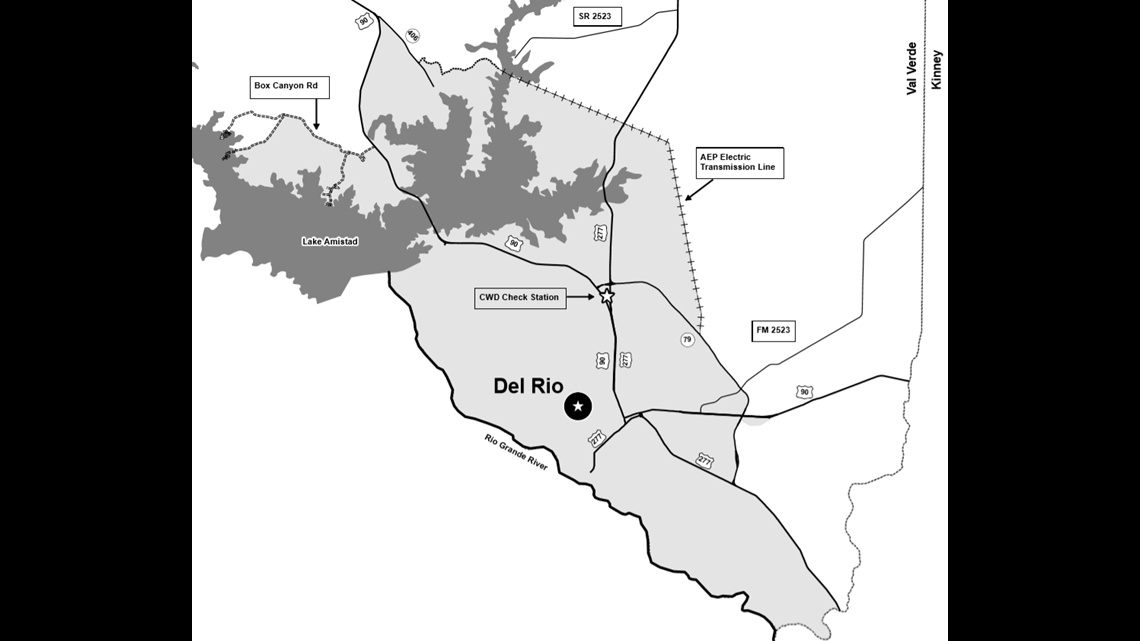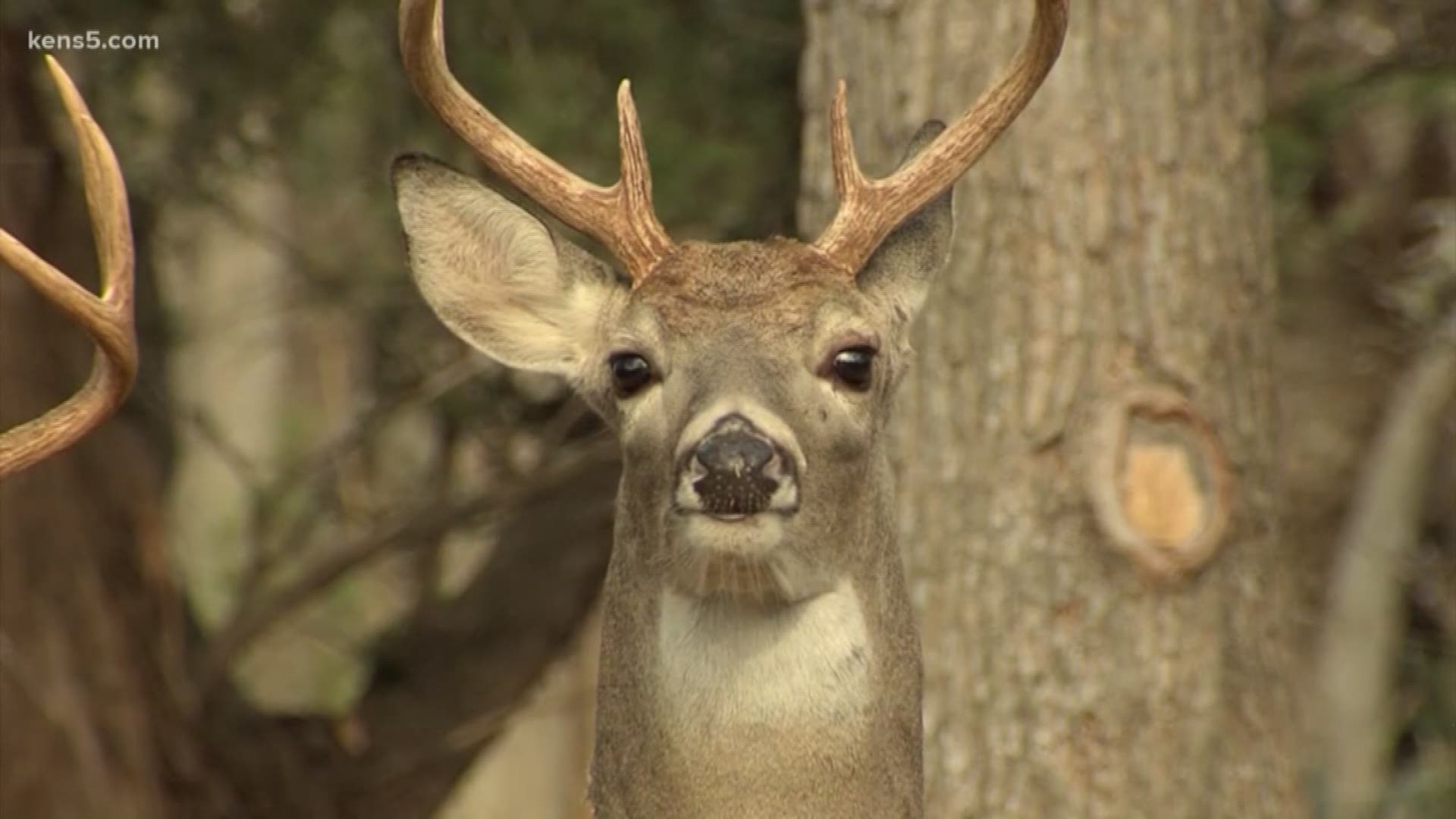SAN ANTONIO — Texas Parks and Wildlife issued new regulations Thursday after a deer in Val Verde County tested positive for chronic wasting disease.
The illness, which is related to mad cow disease, infects moose, deer, elk, and reindeer and can spread easily.
“We are concerned about it because of its impact to deer populations," said TPWD wildlife director Clayton Wolf. He called the disease "insidious.”
The disease attacks the animal's brain, causing drooling, instability, lack of coordination, loss of fear of humans, among other symptoms.
“As the name of the disease indicates, first is they’ll start wasting away and be in poor condition," Wolf said. The disease doesn't always kill the infected animal quickly, but death is inevitable.
The disease is spread through direct contact with the infected animal, and indirectly through contact with a contaminated environment.
While there's no evidence the disease can be contracted by humans, the stakes are still high.
“The economic impact to Texas is over $2 billion just attributed to deer hunting," Wolf said, adding that the industry is particularly beneficial to rural communities.
In an effort to stop the spread of the disease in Val Verde County, TPWD established a new containment zone, meaning there are certain restrictions in place that prevent the transportation of carcasses and parts from the containment zone.


Additionally, deer or other species vulnerable to the disease that are harvested within the zone must be taken to a check station to be tested for the disease.
“Outside those zones, we really encourage folks to help us test. It’s part of our strategy of early detection,” Wolf said.
TPWD has a website with more information about CWD, as well as the regulations associated with animals harvested in areas affected by the disease. The website also keeps current information about the location of containment zones, check stations and certified CWD collectors.

